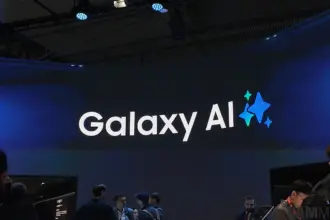In the breakneck speed world of artificial intelligence development, where tech giants are locked in a fierce battle to unveil the next groundbreaking model, an unexpected voice has emerged with a seemingly counterintuitive strategy. Mustafa Suleyman, the newly appointed CEO of Microsoft AI, suggests there’s a distinct advantage in not always being first to the party. In a recent series of insightful discussions and public appearances, Suleyman has hinted at the wisdom of building AI models that might lag behind the absolute cutting edge by a matter of months, a timeframe he subtly indicates could be around three to six months. This approach, far from being a sign of lagging ambition, could actually be Microsoft’s calculated masterstroke in the long-term AI game.
But how can being “late” in such a rapidly evolving field possibly be beneficial? Isn’t the race all about who gets there first with the most powerful technology? Suleyman’s perspective offers a refreshing and perhaps more pragmatic view. Instead of solely focusing on the raw power and immediate capabilities of the absolute latest models, Microsoft under his guidance appears to be prioritizing a more nuanced approach centered on safety, reliability, and real-world applicability.
Consider the current landscape of AI. New models with increasingly sophisticated capabilities are being announced at an almost dizzying pace. While these advancements are undeniably exciting, they often come with a degree of uncertainty. Early iterations might have unforeseen biases, vulnerabilities, or limitations that only become apparent through widespread use and scrutiny. This is where Suleyman’s strategy of a slight delay could prove advantageous. By observing the successes and, more importantly, the shortcomings of models released by competitors in the preceding months, Microsoft can gain invaluable insights.
Imagine a scenario where a rival company releases a highly advanced language model that, despite its impressive performance on benchmarks, exhibits unexpected biases in certain demographic groups. By being a few months behind, Microsoft’s AI team has the opportunity to analyze these issues, understand their root causes, and proactively address them in their own upcoming models. This allows them to build more robust, fair, and reliable AI systems from the outset, potentially avoiding costly and reputation-damaging issues down the line.
Furthermore, the rapid pace of AI development also means that the underlying technology and methodologies are constantly improving. Being slightly behind could allow Microsoft to incorporate the very latest research breakthroughs and engineering advancements that might not have been available when the “first-to-market” models were being finalized. This could translate to models that are not just safer but also potentially more efficient and capable in the long run.
Suleyman’s background as the co-founder of DeepMind, a pioneering AI research company known for its groundbreaking work, lends significant weight to his perspective. DeepMind has always emphasized a responsible and ethical approach to AI development, and it appears this philosophy is now being carried over to Microsoft’s AI division under his leadership. His focus isn’t solely on winning the initial sprint but on building AI that will have a positive and lasting impact on society.
This strategic patience could also be seen as a way for Microsoft to focus on the practical application and integration of AI into its existing ecosystem of products and services. Instead of rushing out the latest model just for the sake of being first, they can take the time to ensure that their AI is seamlessly integrated, user-friendly, and provides tangible value to their customers. This might involve more rigorous testing, fine-tuning for specific applications, and building the necessary infrastructure to support widespread deployment.
Think about the integration of AI into Microsoft’s popular suite of productivity tools like Microsoft 365. While others might have quickly bolted on basic AI features, Microsoft, under Suleyman’s guidance, could be taking a more measured approach, ensuring that the AI enhancements are deeply integrated, intuitive to use, and genuinely improve user workflows. This focus on practical value and user experience could ultimately be a more significant differentiator than simply having the “newest” model.
This doesn’t mean Microsoft is complacent or lagging in its overall AI ambitions. Far from it. The company has made massive investments in AI infrastructure and talent, and Suleyman’s appointment itself signals a renewed focus and commitment to the field. Instead, their strategy appears to be one of calculated prudence, prioritizing long-term quality and reliability over the immediate gratification of being first.
Some might argue that in such a fast-moving field, being even a few months behind could mean missing out on crucial market share or falling behind the competition. However, Suleyman’s perspective suggests that the long-term success of AI will depend not just on raw power but on trust, safety, and real-world utility. By focusing on these aspects, even if it means a slight delay in releasing the absolute latest model, Microsoft could be positioning itself for sustained leadership in the AI era.
The coming months will be crucial in observing how this strategy unfolds. Will Microsoft’s patient approach pay off in the long run? Will their focus on safety and reliability resonate with users and regulators? Only time will tell. But one thing is clear: in the high-stakes game of AI, Mustafa Suleyman and Microsoft are playing a different kind of hand, one that values strategic timing and responsible development over the relentless pursuit of being first. This could very well be the winning formula in the marathon of the AI race.






























